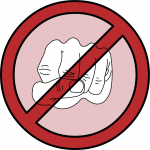
John Baker summarises a new Norwegian trial published last week, which compares an open-door policy to treatment-as-usual in urban psychiatric inpatient wards.
[read the full story...]
John Baker summarises a new Norwegian trial published last week, which compares an open-door policy to treatment-as-usual in urban psychiatric inpatient wards.
[read the full story...]
André Tomlin summarises a 15 year observational study published today in The Lancet Psychiatry, which provides fascinating insight into suicide risk and absconding in psychiatric inpatient units with locked wards and open door policies.
[read the full story...]
Laura Hemming considers a recent systematic review of patient outcomes following discharge from secure psychiatric hospitals. The review finds that patients from secure units have a higher chance of mortality and suicide following discharge, than people from other settings.
[read the full story...]
Sarah Carr summarises a study of user involvement and coproduction initiatives in secure mental health settings, which recommends schemes that build alliances, garner mutual respect and support communication between staff and service users in shared forums.
[read the full story...]
Here at the Mental Elf we are always on the look out for research that extends trials into new areas, and offers practical benefits to people recovering from mental illness. Within psychiatric wards violence and challenging behaviour can be extremely distressing, with a 2007 Healthcare Commission report finding that over half of staff and almost half of [read the full story…]

Introduction From April 2013, the NHS Commissioning Board will take on more responsibility to ensure that all patients receive better outcomes from the NHS. As part of this, they will be responsible for planning, securing and monitoring health services for victims of sexual assault, and people in prison and other secure settings, including children’s homes [read the full story…]